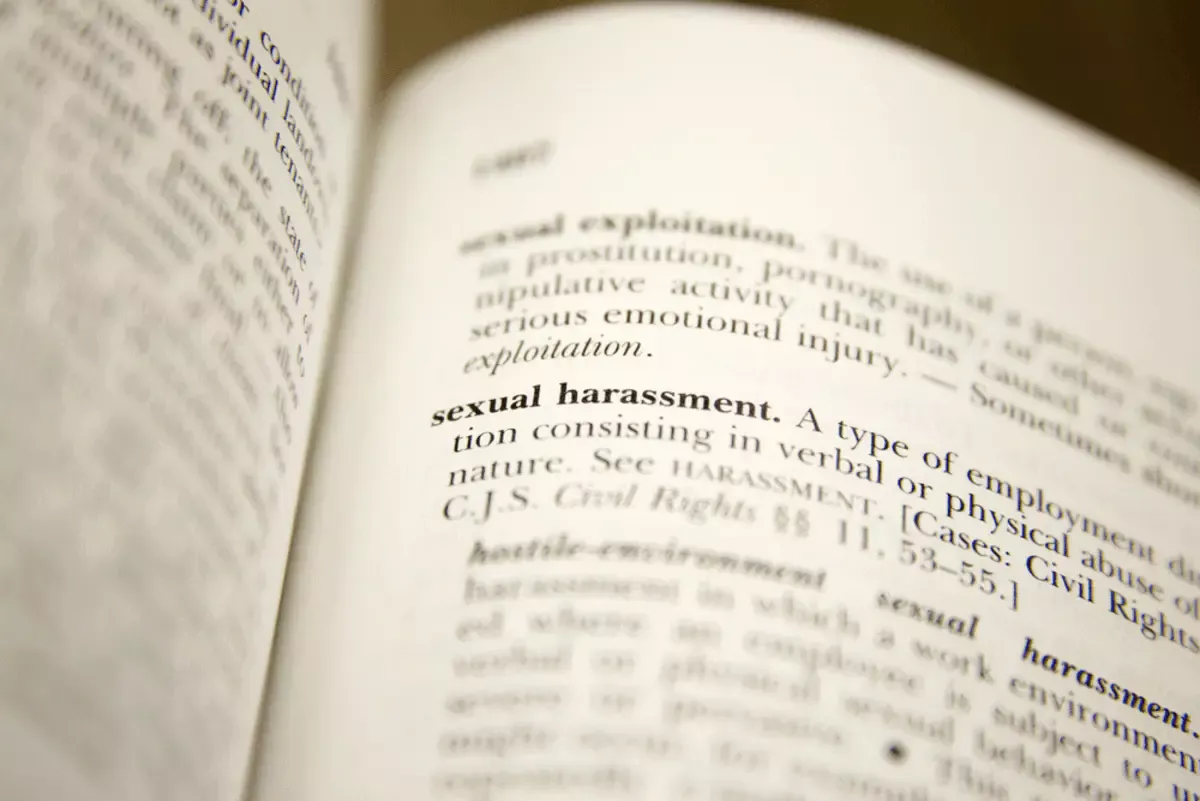Sexual harassment in the workplace is a serious issue that affects employees across all industries. In California, strict laws are in place to protect workers from harassment, and it’s essential for both employees and employers to understand these legal protections. The most notable law is the California Fair Employment and Housing Act (FEHA), which offers robust protection against workplace discrimination and harassment. If you’re wondering which California law protects workers from sexual harassment, FEHA stands as a cornerstone in safeguarding employees’ rights.
1. What is the California Fair Employment and Housing Act (FEHA)?
The California Fair Employment and Housing Act (FEHA) is the primary law that protects California workers from sexual harassment. Enacted in 1959, FEHA has evolved to cover various forms of discrimination, including sexual harassment, ensuring that all employees have the right to a workplace free from hostility and misconduct.
FEHA applies to both public and private employers, labor organizations, and employment agencies. The law prohibits any unwelcome sexual advances, requests for sexual favors, or other verbal, physical, or visual harassment of a sexual nature. The key aspect of FEHA is that it doesn’t just apply to full-time employees but also extends to part-time workers, temporary employees, and even independent contractors under certain conditions.
2. How FEHA Defines Sexual Harassment
Under FEHA, sexual harassment is defined as any unwelcome behavior of a sexual nature that creates an intimidating, hostile, or offensive working environment. This can include:
- Quid Pro Quo Harassment: When job benefits such as promotions, salary increases, or continued employment are contingent on submitting to sexual advances.
- Hostile Work Environment: When pervasive or severe conduct creates a work environment that a reasonable person would find intimidating, hostile, or abusive.
The law doesn’t require physical contact to qualify as harassment. Offensive jokes, comments, and non-physical gestures of a sexual nature can also be grounds for legal action.
3. Employer Responsibilities Under FEHA
Employers in California have a legal obligation to prevent sexual harassment. According to FEHA, businesses must:
- Implement and distribute a harassment prevention policy.
- Provide mandatory sexual harassment prevention training to employees and supervisors.
- Establish a process for handling complaints and conducting investigations into allegations.
- Take immediate corrective action if sexual harassment occurs.
Failing to follow these guidelines can result in legal consequences for the employer, even if the harassment is committed by a non-employee, such as a customer or contractor.
4. The Role of the California Department of Fair Employment and Housing (DFEH)
The California Department of Fair Employment and Housing (DFEH) is responsible for enforcing FEHA. Workers who believe they have been victims of sexual harassment can file a complaint with DFEH, which will investigate the claim. If DFEH finds merit in the complaint, they may issue a right-to-sue letter, allowing the employee to take the case to court.
Employers must cooperate with DFEH investigations and provide all necessary documentation. The department also offers free resources and educational materials to help employers and employees understand their rights and obligations under the law.
5. How California’s Law Differs from Federal Sexual Harassment Protections
California’s FEHA provides broader protections compared to federal laws, such as Title VII of the Civil Rights Act of 1964. While Title VII also prohibits sexual harassment, it only applies to employers with 15 or more employees, whereas FEHA applies to businesses with just five or more employees. Additionally, independent contractors, who are typically not covered under federal law, may be protected under FEHA in certain situations.
Moreover, California requires more stringent anti-harassment training for employers. Under Senate Bill 1343, California employers with five or more employees must provide at least two hours of sexual harassment prevention training to supervisors and one hour to non-supervisory employees every two years.
6. Legal Recourse for Victims of Sexual Harassment
Victims of sexual harassment in California have several options for pursuing legal recourse. After filing a complaint with DFEH, if the claim is substantiated, victims may receive compensation for damages, including:
- Back pay and lost wages.
- Compensation for emotional distress.
- Reimbursement for legal fees.
- Possible punitive damages if the employer’s conduct was particularly egregious.
In cases where DFEH is unable to resolve the issue through mediation or settlement, the victim may receive a right-to-sue notice, which permits them to take their case to court.
7. Case Studies: Real-World Examples of FEHA in Action
Several high-profile cases have highlighted the strength of California’s sexual harassment laws. For example, in 2018, a former Google employee filed a lawsuit under FEHA, accusing the company of ignoring complaints of sexual harassment. The case ultimately led to a significant settlement and underscored the importance of employers taking sexual harassment complaints seriously.
Another notable case is that of a Hollywood studio executive who was sued for creating a hostile work environment through repeated sexual advances toward subordinates. The court awarded the victims millions in damages, demonstrating how seriously California courts take such matters under FEHA.
8. Key Takeaways for Employees and Employers
For employees, knowing your rights under FEHA is essential. If you experience sexual harassment at work, you are protected by one of the nation’s strongest state laws, which ensures that your complaints must be taken seriously and investigated thoroughly.
For employers, failing to adhere to FEHA guidelines can lead to significant legal consequences. It’s crucial to provide regular sexual harassment training, create an inclusive workplace culture, and act promptly on any harassment complaints.
FAQ Section
Yes, under certain conditions, independent contractors can file sexual harassment claims under FEHA, especially if they are treated similarly to employees.
Yes, victims have three years from the date of the harassment to file a complaint with DFEH.
Quid pro quo harassment occurs when job benefits such as promotions or raises are contingent upon submitting to sexual advances.
Yes, under FEHA, employers can be held liable for harassment by non-employees, such as customers or vendors, if they fail to take corrective action once aware of the harassment.
California law requires businesses with five or more employees to provide sexual harassment prevention training to both supervisors and non-supervisory employees every two years.
Conclusion
California’s FEHA is a vital tool for protecting workers from sexual harassment. By clearly defining harassment, requiring employer training, and offering legal recourse to victims, the state ensures that workplaces remain safe and respectful for all employees. Both employees and employers must understand these laws to create a culture where sexual harassment is not tolerated.
Read More: What Is Quid Pro Quo Sexual Harassment?
Reliable Sources for Further Reading
Here are some trusted sources that provide further insights into California’s laws on sexual harassment and employee protections. These resources offer comprehensive and up-to-date information on the legal framework and guidance for both employers and employees.
- California Department of Fair Employment and Housing (DFEH)
- The official state agency responsible for enforcing civil rights laws, including FEHA.
- DFEH – Sexual Harassment FAQs
- California Legislative Information – Fair Employment and Housing Act (FEHA)
- Provides the full text of the California Fair Employment and Housing Act (FEHA) for reference.
- California FEHA – Full Legal Text
- U.S. Equal Employment Opportunity Commission (EEOC)
- While a federal agency, the EEOC offers important insights on workplace harassment that complement California’s laws.
- EEOC – Sexual Harassment
- California Law – Senate Bill 1343 (Harassment Training Requirements)
- Learn more about California’s law requiring employers to provide sexual harassment prevention training.
- Senate Bill 1343 Overview
- U.S. Department of Labor – Sexual Harassment
- An additional resource that provides federal-level guidelines and protection information regarding workplace harassment.
- DOL – Sexual Harassment Overview
These sources can be consulted for detailed legal guidelines, case studies, and the latest updates on sexual harassment laws in California and the broader U.S.

Jonathan Hartley is a highly regarded senior criminal lawyer with over 15 years of experience in the UK legal system. He began his career at a prestigious law firm in London, where he specialized in both defense and criminal law. Known for his ability to craft compelling defense strategies, Jonathan has successfully represented clients in high-profile cases and earned multiple awards for his contributions to the field of law.
In addition to his legal practice, Jonathan is also an accomplished legal writer, contributing articles to top legal blogs and online platforms. His work not only provides valuable insights into legal matters but also meets Google’s E-E-A-T standards by delivering accurate, reliable, and trustworthy information to readers. Committed to legal ethics and public welfare, Jonathan actively participates in discussions on law and justice while educating the public through his writing.










